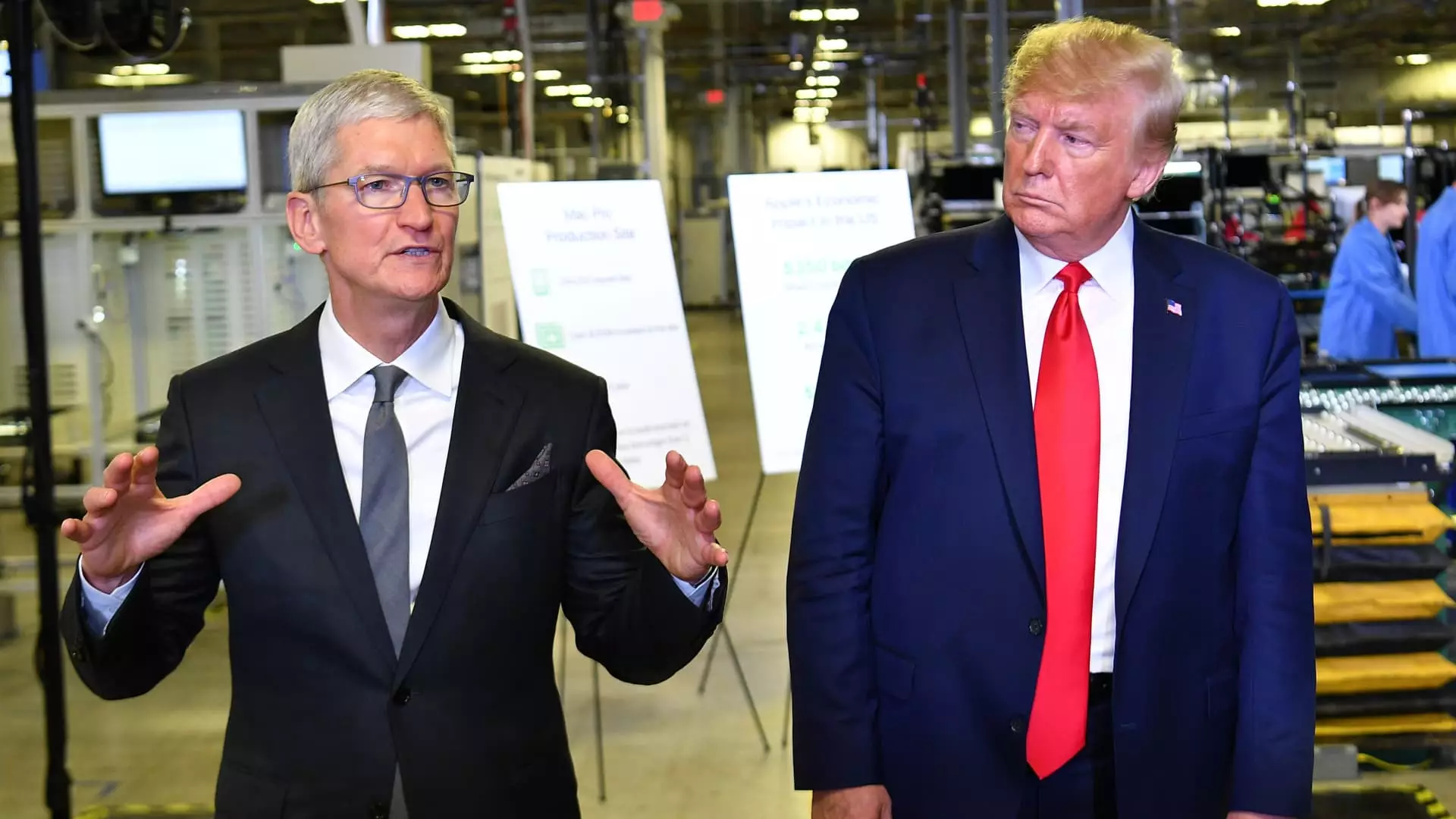When President Donald Trump recently warned that Apple could face tariffs of 25% or more on iPhones manufactured outside the United States, he unveiled a dogged commitment to reshaping American manufacturing. The implications of his statement reverberate not just in boardrooms but also in consumer wallets. The potential for price hikes up to $3,500 for the next generation of iPhones is more than an economic stat—it is indicative of a strategic, politicized push for domestic manufacturing under the guise of patriotism. As apples and oranges become economic staples of a trade war, we must grapple with the ramifications of such aggressive tariff policies.
The Myth of Economic Patriotism
At face value, Trump’s demand for iPhones to be manufactured in the U.S. appears to align with an ideal of American self-sufficiency, but it belies a more complex narrative. In what world is sacrificing competitive pricing for hollow patriotism beneficial for the consumer? While it’s easy to espouse national pride, the consequential economic burden could turn millions of average Americans away from the technology that has become a staple in their lives. Transformation of Apple’s manufacturing base may be a noble idea, but lowering costs and ensuring ongoing accessibility to innovative products should take precedence over populist fervor.
Trump’s approach has manifested as a mixed bag, with Wall Street already foreseeing that shifting production could elevate the retail price of an iPhone by an astounding 25%. Analysis from Wedbush’s Dan Ives highlights that a U.S.-made iPhone could cost upwards of $3,500—a staggering amount for something that currently hovers around a thousand bucks. Here lies the paradox: while Trump’s administration champions the notion of “buy American,” we must ask ourselves whether this approach truly resonates with the average American consumer.
Apple’s Strategic Quandary: Where to Manufacture?
Apple, under CEO Tim Cook’s leadership, has already been making strides toward diversifying its manufacturing base, moving some production to India due to its relatively amicable trade relationship with the U.S. However, the pressure from Trump could complicate these plans. The relationship between Cook and Trump has been complex; Cook notably donated $1 million to Trump’s inauguration fund and has engaged in dialogue with him. In an ironic twist, while Apple pledges $500 billion toward U.S. development, the suggestion of a tariff serves as a looming cloud over its future production strategies.
Furthermore, Apple’s latest quarterly earnings report anticipates that tariff issues could amount to an additional $900 million in costs. The winds of change are swirling as analysts report that Foxconn, an essential partner in iPhone assembly, is investing $1.5 billion into expanding facilities in India. The stakes have never been higher as Apple navigates the tumultuous waters of international manufacturing and the unpredictability of evolving tariffs.
Restlessness in Trade Wars: U.S. Consumers as Collateral Damage
The specter of trade wars is a persistent reality, and Trump’s comments signal a shift back toward combative tariffs that had seemingly lost traction in recent months. Previous threats during Trump’s first term showcased a complicated relationship where key consumer goods were in the crosshairs but ultimately excused from burdensome tariffs. However, making a specific consumer product, like the iPhone, a target for tariffs redefines the stakes entirely.
Amidst the fog of trade tensions, Apple not only faces the direct challenge of manufacturers but also the burgeoning lack of demand in crucial markets like China. As such, Apple must balance its alluring product portfolio with the expanding pressures of tariffs and declining consumer demand, a dance that many corporations find perilous.
Ultimately, while Trump calls for America-first policies, it’s imperative to remember that we are all connected in this global economy. Chip away at the tree of international trade, and you risk a domino effect that could damage not only Apple and its suppliers but also the everyday consumer who finds themselves squeezed between lofty tariffs and rising costs.

